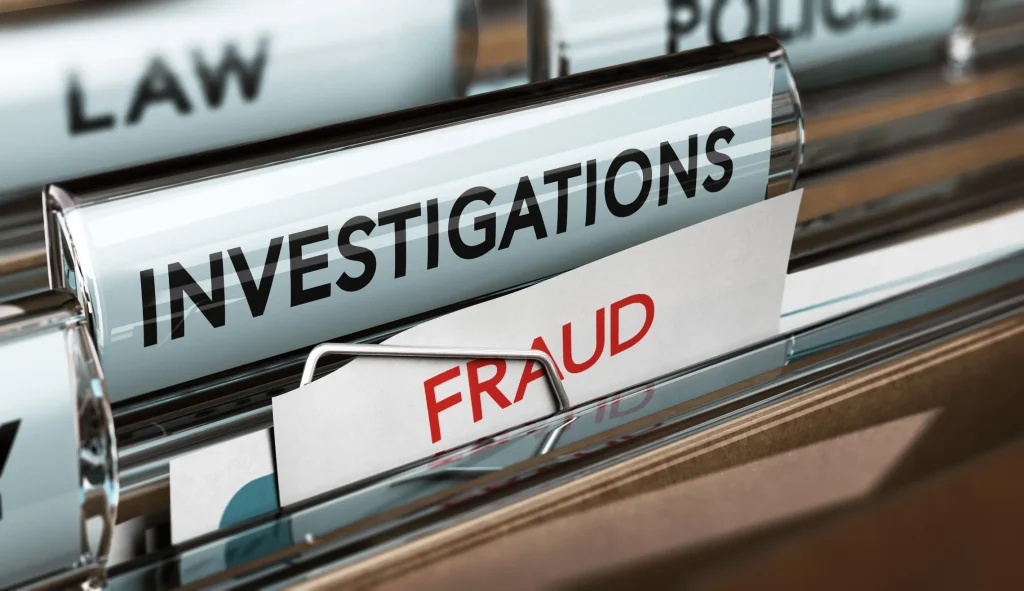 An Internal Revenue Service (IRS) tax audit is not always something to be seriously concerned about, especially if the IRS agent seems to have relatively simple and easily answered queries about your tax return. However, the process leaves you vulnerable to additional taxes, penalties, and even legal proceedings. Although you may think this is unlikely for your situation, the risk is always there.
An Internal Revenue Service (IRS) tax audit is not always something to be seriously concerned about, especially if the IRS agent seems to have relatively simple and easily answered queries about your tax return. However, the process leaves you vulnerable to additional taxes, penalties, and even legal proceedings. Although you may think this is unlikely for your situation, the risk is always there.
Entering into an audit without legal representation can increase the risk of you making a mistake or accidentally providing the wrong information to the agent in the audit. Mistakes can lead to an incorrect interpretation of your accounts and could result in a large additional tax bill, IRS penalties, and interest. As such, the cost of an audit can quickly mount up if it is not appropriately handled.
Although legal representation is not an official requirement for an audit, it is your right. We can’t stress enough the importance of exercising this right to protect yourself against a substantial tax bill, IRS penalties, interest, and a possible court case.
Ronald Arthur Stearns, Attorney at Law Tax Audit Attorney
Ronald Arthur Stearns, Attorney at Law of Ronald Arthur Stearns, Attorney at Law is an aggressive advocate for Texans in IRS audits and those facing penalties, managing IRS issues, and facing property seizure due to unpaid collections.
If you are represented by Ronald Arthur Stearns, Attorney at Law in your tax audit, you can rest assured that we will protect your best interests and ensure you are as prepared as possible for your audit. Even mistakes or errors on your tax return that you are unaware of can escalate resulting in penalties and significant financial costs. Do not risk an audit without an experienced tax attorney by your side.
If you have received an audit letter, contact Ronald Arthur Stearns, Attorney at Law today at 210-853-2135 to book your consultation.
What Happens During An IRS Tax Audit?
 The IRS tax audit process can be complex, and the exact details of your audit and how in-depth it is will depend upon the specific concerns and questions the IRS has. An audit is not an accusation of wrongdoing. It is a process to determine the accuracy of your tax returns.
The IRS tax audit process can be complex, and the exact details of your audit and how in-depth it is will depend upon the specific concerns and questions the IRS has. An audit is not an accusation of wrongdoing. It is a process to determine the accuracy of your tax returns.
If you are subject to an IRS tax audit, you will be asked for specific information, documents, and evidence to substantiate the details in your tax return. It is important to be fully prepared for your audit with the information requested, but there is no need to provide documentation that was not requested by the IRS.
Types Of Audit
An audit may be conducted entirely at random or because something on your tax return has triggered questions at the IRS. Issues such as filing your tax return late, failing to file entirely, or abnormally large changes to your circumstances could all trigger an audit. Similarly, the IRS uses computer models to predict roughly what they expect your tax return to be based on previous years. If the return you file differs significantly from the estimate, this can also raise questions and result in an audit.
Correspondence Audits
A correspondence audit is generally conducted through the mail. During this type of audit, the IRS may request clarification or supporting documentation to substantiate certain elements of your tax return. For example, they may request proof of some of your large deductions, such as a charitable donation. You can provide this evidence via mail, and if satisfied, the IRS could conclude your audit.
Office Audits
If you are requested to take part in an office audit at any local IRS agency locations, you will be required to attend the office in person and meet with an IRS agent to discuss your accounts. Generally, these audits are more in-depth than correspondence audits, and the IRS will take a more comprehensive look at the information provided in your tax return.
Likely, you will be required to bring specific documents and records with you. Required documentation could include bank account statements, purchase receipts, payroll details, mortgage statements, and pensions statements. You are permitted to be represented by a tax attorney for an office audit, and it is generally advisable to do so.
Field Audits
A field audit, where an IRS agent will visit your place of work or home, is the most comprehensive type of audit that can be undertaken. These audits will involve a comprehensive examination of your accounts and the details from your tax returns. If you are informed that the IRS is conducting a field audit on you, they likely have significant questions about your taxes and reporting.
You can expect to have most or even every element of your tax return investigated thoroughly. You should prepare documentation, evidence, and means of verification to substantiate your accounts. Additionally, it will be in your best interests to hire an attorney to assist you.
Potential Tax Audit Outcomes
 The best outcome of an IRS audit is no changes. If the IRS is satisfied with your supporting evidence and the outcome of further investigation into your tax return, they will decide that no changes are required to your tax liability. Other potential audit outcomes include an additional tax bill, penalties, interest, and even civil or criminal proceedings in the worst-case scenario.
The best outcome of an IRS audit is no changes. If the IRS is satisfied with your supporting evidence and the outcome of further investigation into your tax return, they will decide that no changes are required to your tax liability. Other potential audit outcomes include an additional tax bill, penalties, interest, and even civil or criminal proceedings in the worst-case scenario.
Additional Taxes
If the IRS finds that you underestimated your tax liability, you will be required to repay the amount you owe in full. You may also be subject to additional fines on top of the taxes that you owe if you are delayed in repaying this amount to the IRS. For every month the payment is delayed, you will be charged an additional penalty of 0.5% of the amount you owe.
IRS Penalties
If the IRS finds errors or violations of tax law in your tax return during an audit, you may face penalties, which can be substantial. The list of potential errors that may result in penalties and additional interest is extensive, and some errors are easily made. Penalties for underestimating or underreporting your taxes and overstating pension liabilities can result in fines of hundreds and even thousands of dollars. Possible penalties as a result of an audit include the following:
- Dismissing regulations or negligence penalties
- Significantly misstating your property value penalties
- Penalties for failure to pay taxes by the due date
- Overstating pension liabilities penalties
- Penalties for underreporting your taxes
- Understating a gift or estate penalties
Civil Investigation And Penalties
 You could receive additional civil tax penalties for any errors made in your tax return, such as discrepancies between the amount of tax you stated that you owe and the actual amount calculated by the IRS. In this situation, you could be fined up to 20% of the total amount that you owe.
You could receive additional civil tax penalties for any errors made in your tax return, such as discrepancies between the amount of tax you stated that you owe and the actual amount calculated by the IRS. In this situation, you could be fined up to 20% of the total amount that you owe.
Additionally, you may be subject to a civil investigation and lawsuit if the IRS suspects intentional tax fraud. If you are found to have committed fraud in the civil court, you may receive a penalty of up to 75% of your original underpaid taxes. This penalty almost doubles the initial underpaid tax bill you received, alongside other penalties and interest. The costs of an audit can quickly escalate and cause a significant financial problem.
Criminal Investigation
Tax evasion and tax fraud can both be criminal offenses. If the IRS believes that you have intentionally committed tax fraud or evasion, their criminal investigation department may begin an investigation into your conduct. The outcome of a criminal investigation can, of course, result in criminal charges, a permanent criminal record, and even time behind bars.
Criminal Charges
A criminal investigation could result in criminal charges for either tax evasion or tax fraud. If you are convicted of tax evasion in a criminal court, you face the possibility of up to one year in prison and a fine of up to $250,000. A tax fraud conviction is even more severe and carries the risk of up to five years in prison and a $250,000 fine.
A criminal conviction does not negate the possibility of civil penalties too. You could be charged in criminal court and still receive penalties in a civil fraud case on top of the criminal penalties.
How Will I Know If I Am Under Investigation?
It is generally very difficult to know for sure if you are under investigation for tax fraud. The investigating agency will aim to keep this information from you to ensure that you don’t take any steps to dispose of the evidence before the case against you is built.
Specific signs that could be an indication of an investigation include, but are not exclusive to, the following:
- If you have been regularly in contact with an IRS agent through your audit who suddenly disappears and ceases contact
- If you receive a formal summons to an interview, as opposed to a request
- If you are under a civil fraud investigation that suddenly pauses, this could be a sign of a pending criminal investigation
- Your accountant has been interviewed by the IRS
- Your audit agent discloses that they have consulted with a fraud technical advisor
Do I Need A Tax Attorney For An IRS Audit?
 IRS audits are particularly stressful events. Simply forgetting to provide specific documents and evidence or something you say during the audit can be used against you. IRS agents have been known to be aggressive and sometimes overzealous in their pursuit of tax violations. Navigating this process with the support of a tax audit lawyer can be highly beneficial.
IRS audits are particularly stressful events. Simply forgetting to provide specific documents and evidence or something you say during the audit can be used against you. IRS agents have been known to be aggressive and sometimes overzealous in their pursuit of tax violations. Navigating this process with the support of a tax audit lawyer can be highly beneficial.
Although tax audits are not an accusation of wrongdoing, depending on the type of audit, they can be a sign that the IRS has serious questions or suspicions about your tax returns. Tax attorneys with extensive experience in IRS audits can not only ensure that you are adequately prepared, but they can also identify when it looks like the agent is leaning towards penalties or further actions. This early identification means your lawyer can immediately begin preparing for an appeal, abatement request, or counter-argument.
How An Attorney Can Help
If you decide to hire a tax attorney to represent you in your IRS tax audit, this can be significantly beneficial to you in many ways.
For example, a tax attorney has the experience to identify when it seems like an IRS agent is misinterpreting your evidence or documentation and could be considering imposing penalties that are not necessary. In this situation, your lawyer can intervene, provide clarification, and defend you against unfair penalties. An audit can be a daunting and confusing process, and you may not feel confident enough to aggressively defend yourself in situations with such uncertainty.
Similarly, if an agent is looking to enforce a penalty, an experienced tax attorney will be well-versed in the vast range of potential arguments that can be used to avoid a penalty charge. The IRS has many exemptions or forgiveness schemes that very few people are aware of or understand how they can benefit from. Your lawyer will utilize arguments such as reasonable cause, first-time penalties, and administrative waivers to have any possible penalties dismissed by the IRS.
Additionally, If you need more time to organize your accounts before your audit, an IRS audit attorney can request a postponement and support you to gather the required documentation for the audit.
Should the worst happen from an audit and you face civil or criminal fraud penalties, a lawyer who has been working with you since the start of your audit process is best placed to develop a timely and comprehensive defense. At this point, your attorney will already have an in-depth knowledge of your accounts and the concerns the IRS has about your tax return. This knowledge will mean that they can start to work much faster on developing a counter-argument to these claims without the need to get up to speed with your case.
Contact Ronald Arthur Stearns, Attorney at Law To Prepare For Your Tax Audit
 Having an experienced tax attorney by your side during a tax audit can be incredibly valuable. Not only can they protect you from miscalculations and penalties you shouldn’t receive, but they may also be able to have penalties abated and save you hundreds, if not thousands, of dollars.
Having an experienced tax attorney by your side during a tax audit can be incredibly valuable. Not only can they protect you from miscalculations and penalties you shouldn’t receive, but they may also be able to have penalties abated and save you hundreds, if not thousands, of dollars.
In addition, although a civil lawsuit or criminal investigation is a worst-case scenario, it is not outside the realms of possibility. Representation from an IRS audit defense lawyer can make a significant difference to the likelihood of facing an investigation and potentially severe repercussions.
Managing an IRS audit without an attorney is a risk, one that could result in substantial financial costs or worse. Ronald Arthur Stearns, Attorney at Law can reduce the risks posed by an audit and ensure that you are treated fairly and well-represented throughout. An audit can be far less stressful and doesn’t have to be such a cause for concern if you have the right legal counsel.
Contact Ronald Arthur Stearns, Attorney at Law by calling us at 210-853-2135 to book your initial consultation with an IRS audit defense attorney.
